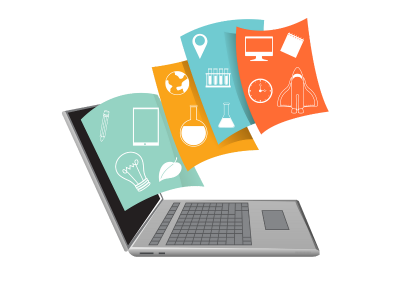Special Education Services
The Program Planning Team, informed by comprehensive assessment, determines appropriate service and/or application for service and records their decisions on an Individual Education Plan. Service options include:
Alternate Format Material Libraries - Alternate Format Material (AFM) is a special education programming accommodation used by students who encounter barriers accessing traditional print materials. It includes materials such as audio books, Braille, and digital versions of books. Students requiring skill development programming may access this accommodation.
|
There are two libraries operating in the province of Newfoundland and Labrador that provide AFM to K-12 students: the Department of Education’s AFMNL Library and the Atlantic Provinces Special Education Authority (APSEA) Library. The latter serves individuals who require accessibility skills programming; specifically, programming for students who are Blind and Visually Impaired. Both libraries create (as opposed to commercially purchase) the AFM they provide. They are permitted to do this under the Canadian Copyright Act as long as the student has a perceptual or print disability. Applications to access these libraries are made by teachers on behalf of students, and include the needed copyright information. The materials a teacher creates for their class (such as unit tests) are not restricted by the Canadian Copyright Act. Teacher-created materials can be developed in any format. Like libraries, teachers may also create alternate formats of published print materials, as long as they follow the Copyright Act when they do so. Anyone may purchase commercially available AFM. For more information on the Department of Education's Alternate Format Materials Library, see Alternate Format Materials on the Department of Education Website. |
 |
|||||||||
|
Application for Assistive Technology - Assistive technology (AT) is a special education programming accommodation used by students to increase, maintain, or improve their functional capabilities. The use of AT promotes student independence and improves the student’s ability to participate in the teaching and learning environment. Students requiring skill development programming may access this accommodation. Students may enter school with AT provided by an external agency, such as the healthcare system, or their parents/guardians. Teachers may apply to the Department of Education, on a student's behalf, for AT over $200. For more information on the Department of Education's Application for Assistive Technology, see Assistive Technologies on the Department of Education Website. |
.png/AT%20(1)__480x311.png) |
|||||||||
|
Auditory-Verbal Therapy - Auditory verbal therapy supports the acquisition of spoken language for students who are Deaf or hard of hearing (DHH). An auditory-verbal therapist provides this service. Students requiring accessibility skill development for DHH may receive auditory-verbal therapy. Functional Behavioural Assessment and Social-Emotional/Behavioural Support Plan - A functional behavioural assessment (FBA) is comprehensive assessment. It identifies the primary function of a specific behaviour and is used to inform a social-emotional/behavioural support plan. Programming within a social-emotional/behavioural support plan (SE/BSP) addresses the function of challenging behaviour and the skills needed to support the development of replacement behaviours. Students requiring social-emotional/behavioural skill development programming will avail of an FBA and SE/BSP. Students requiring adaptive skill development may avail of an FBA and SE/BSP For more information on Functional Behaviour Assessment and the Social-Emotional/Behavioural Support Plan, see Behaviour Management Plan on the Department of Education Website. Orientation and Mobility Training - Orientation and mobility training supports the ability of the student to know where they are in relation to their environment and to travel within that environment. An orientation and mobility specialist provides this service. Students requiring accessibility skill development for BVI may receive orientation and mobility training. Partial Day Programming - Partial day programming is a short-term strategy used in extreme circumstances to reduce a student's school day. The goal is to address physical health needs, mental health needs and/or severe safety concerns in order to enable the student to experience success in school and return to full-day attendance. Students requiring adaptive or social-emotional/behavioural skill development programming who meet partial day programming criteria may apply. For more Information on Partial Day Programming, see Guidelines for Partial Day Programming for K-12 Students on the Department of Education website. |
||||||||||
|
||||||||||


.png)


.png/Next%20(4)__100x94.png)
.png/Next%20(5)__100x94.png)